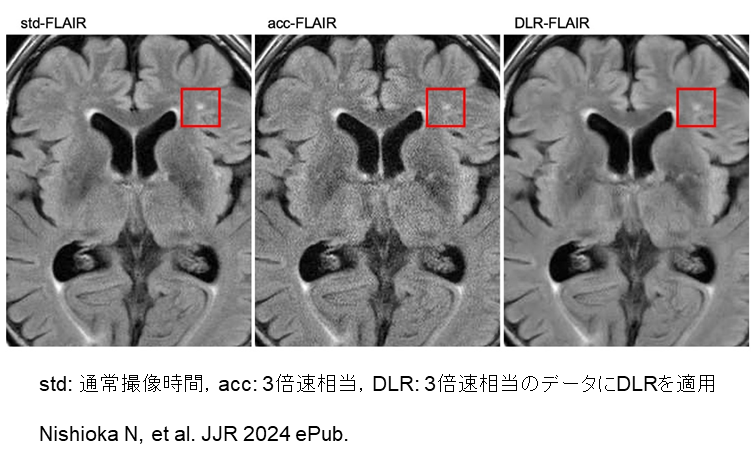Development of High-Speed and High-Resolution MRI Technology Using Deep Learning
MRI tends to take longer scan time compared to CT or ultrasound, which has been a significant challenge. Over the years, various hardware and software improvements have been made to address this issue. Recently, AI-based image reconstruction technology has shown great potential in significantly reducing MRI scan time.
We are developing a high-speed, high-resolution technology using Deep Learning Reconstruction (DLR). This time, we evaluated the effectiveness of this technology in the FLAIR (Fluid Attenuated Inversion Recovery) method, which is used for diagnosing white matter lesions in the brain. Our results demonstrate that even with a threefold reduction in scan time, there is no degradation in the visibility of the lesions.

Development Section in Charge
AI Development for Diagnostic Imaging Assistant Section
Principal Investigator
KUDO Kohsuke, Professor, Department of Diagnostic Imaging, Hokkaido University Graduate School of Medicine
University-Affiliated Researchers
SHIMIZU Yukie, Specially Appointed Assistant Professor, Department of Advanced Diagnostic Imaging Development
NISHIOKA Noriko, Clinical Fellow, Department of Diagnostic and Interventional Radiology, Hokkaido University Hospital
Collaborative Research Partner
FUJIFILM Corporation

